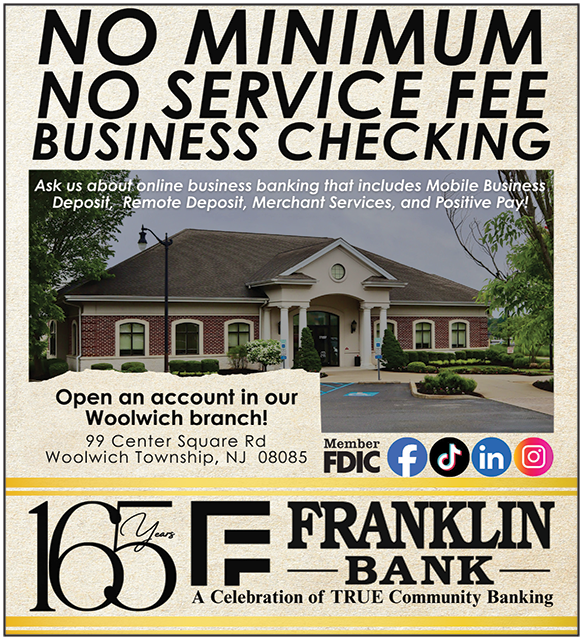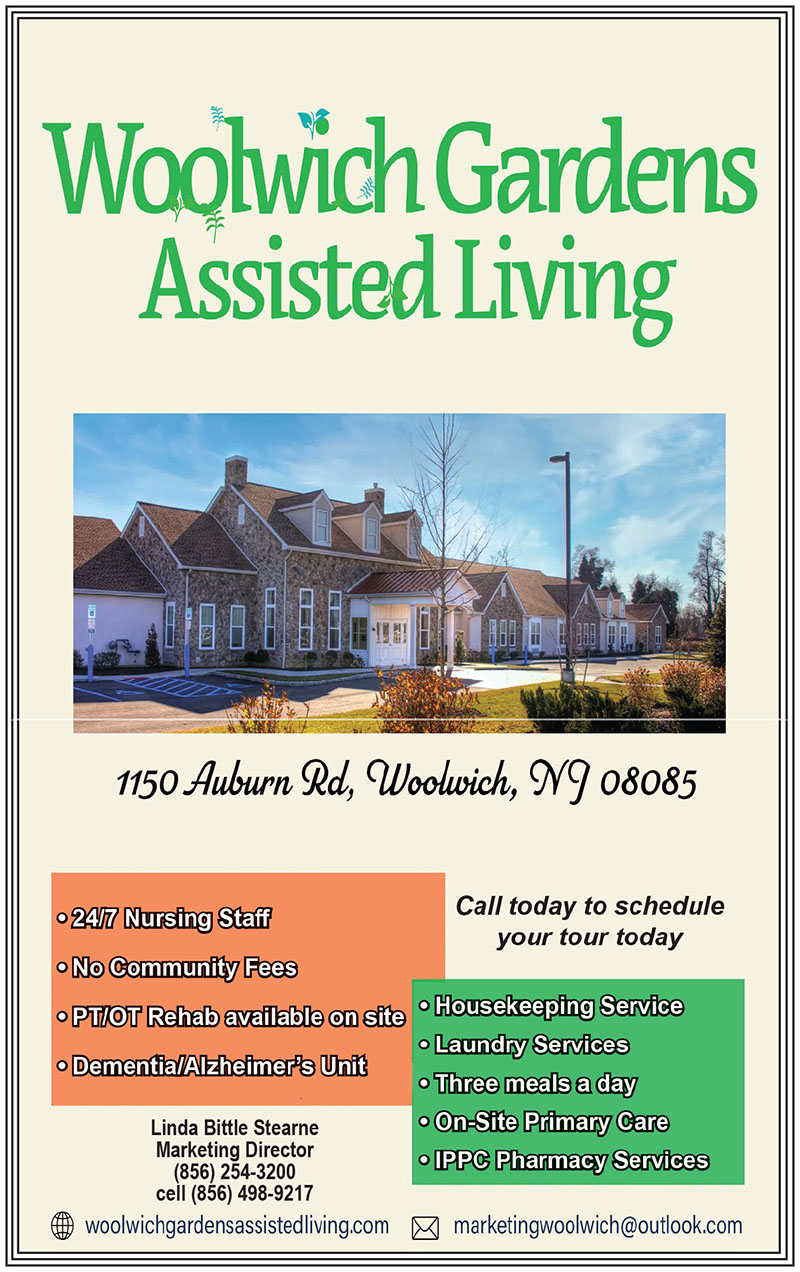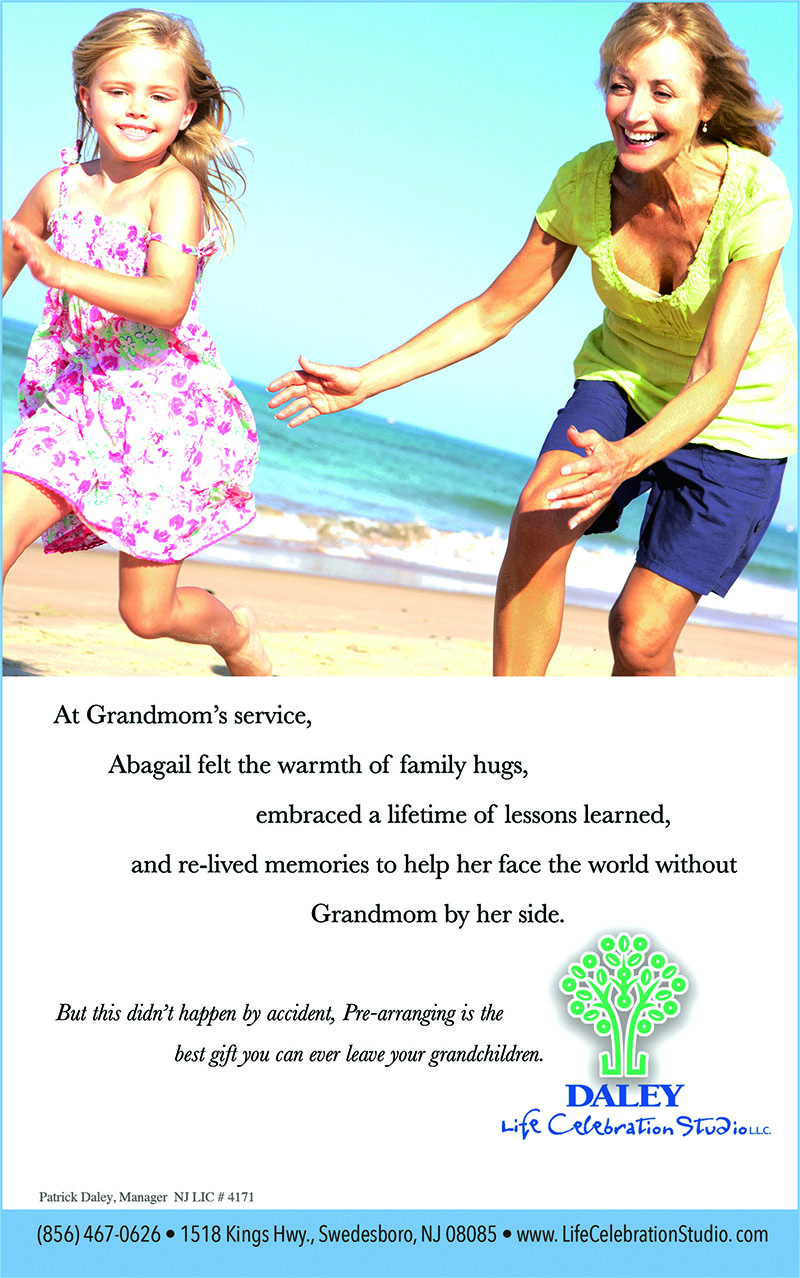A new trend in libations benefits local communities
A trend that began some 40 years ago in California rolled slowly westward and seems now to be cresting in Gloucester and Salem counties. Like most of the ephemeral waves emanating from the third largest state in the nation, this one is artisanal and a lifestyle decision.

Look around. The Swedesboro, Woolwich, Mullica Hill areas and surrounds are suddenly, as these things go, sprouting fascinating variations of the long-familiar tastes of beers, wines, vodkas and, yes, coffees and teas. Micro-brewers of all these libations are setting up shop, brewery, vineyard and distillery and garnering raves for doing so. What’s going on?
Point a finger at the millennials, colloquially decried as the “Me First”, or “Me Me” generation. Grown up and successful, they are adopting a philosophy of doing good for the planet and the people around you. From “me-me” to “me you”, and it’s OK to spend more to get that result.
Then point a finger, too, at the local entrepreneurs who, seeing a trending niche, jumped into it, providing a product that answers the “me you” lifestyle. That trend is the crafting of independent, small-batch, artisanal libations, the blending of flavors, of ingredients designed to please or awaken or satisfy the beer, wine, spirits, coffee, or tea lover in us all. And to do it with locally-grown or sourced ingredients as much as possible, and for the tastes of the community served.
The combination of community benefit and catering to local tastes and desires for new experiences is a winning one, according to Chuck Garrity, an owner of the micro-brewery The Death of the Fox in Clarksboro. Open a mere seven months, Garrity said his combination brewery and coffee house, the only such pairing in New Jersey, is already beyond the business schedule he had. “We’re ahead of our projections. We’ve had an incredible positive reaction.”

Garrity said his clientele recognize and reward the connection to local community. He sources his ingredients from area farmers and partners with The Crescent Moon, a Mullica Hill coffee house, for his coffee trade. In fact, Garrity uses coffee for some of his brews and has combined tea leaves to blend in specialty beers.
“People are embracing the fact our products are made in the local community. ‘Hyperlocal’ is the term being used. We are getting back to the point where 100 years ago every local town had its own taste with its own brews.
“Customers are looking for fresh taste, for local businesses making fresh products in greater variety,” Garrity said. They are coming in for the experiencing, for the community, and they’re bringing their kids. “We get people thrilled to support local business …and they’re willing to spend more for coffee, beers, made just to their liking.”
Most accounts concur that craft brewing began about 1965 when Fritz Maytag bought a stake in Anchor Brewing in California and began experimenting. The trend grew in response to a lack of innovation and creativity in the few national beer brands left after Prohibition ended.
According to Dave Broom, a well-known British writer about all things alcohol, the brew crafting trend is an American phenomenon. “The movement started in America with the rise of craft beer, very much a reaction against the ersatz beer the massive breweries were pumping out,” he opined, as reported by a brew-aficionado blogger. “In time, this spread to spirits – many of the craft distillers are former brewers. Some are also winemakers. … This has now spread across the globe.”
Garrity, himself, was a hobby brewer who moved from the corporate world to opening his own business in pursuit of craft brewing. (See the feature story in the Aug. 2016 New Town Press.) He is encouraging the involvement of his customers with his brewery.
“We want them to feel part of the process,” he said. “We have no TVs here and that’s intentional. I want a place, an escape, from the screen where people can engage with each other.
“Consumer tastes are evolving. Your father’s beer used to be one style. Now there’s over 100 styles. We have a dark Mexican, salted lime lager and people love it. We’re going to be aging it in tequila barrels from Mexico. People want to try something different.
“And it’s not just millennials. I’m finding Boomers are embracing this lifestyle, the fresher is better and it’s good karma to support your local community idea. We work with local farmers and we give all our spent grains to local farms, no charge. That’s good karma.”
Garrity sells a London Fog Pale Ale that is steeped with three pounds of organic black tea. The tea coms from the Crescent Moon coffee and tea house in Mullica Hill where, said head roaster and owner/manager Chris McLaughlin, “We serve coffee roasted in our own facility in West Deptford.”
The taste that earns the business rave ‘Yelp’ reviews comes from attention to many details in the crafting process, from small-batch bean roasting to blending specialty coffees and teas. “For example, we can add Irish Cream to the lattes for St. Patrick’s Day,” McLaughlin said. But it’s freshness, attention to quality in food and beverage offerings, and a chance to experience new tastes that bring in his customers, he added.
“I find people come in and don’t realize how much goes into, how involved it is to make a good cup of coffee, from the farmers to the roasting. It’s science and it’s art and it’s challenging. It’s what I love about it.”
His customers may not understand the process, but they understand the quality and they are willing to pay more for it. “I can definitely attest these are people who will spend on themselves, for that quality of coffee or tea.
Such a decision is exactly what Kerry Thomsen is hoping she’ll find when she opens the Independent Spirits distillery she and husband Marten are building. The Thomsen’s bought a farm in Woolwich and will grow their own grains to produce craft whiskey blends, vodka and gin.

It will be the first distillery in South jersey, she believes, and the business, like other crafters, will go local for ingredients and support.
“We’re planning to deal with small local businesses,” she said, “We’re people inspired to make things with our own hands. The whole movement of craft (products) is that people want things nearby and from neighbors. It’s feel-good shopping and it’s life-style, reactionary, philosophical.
“It’s the millennial age group driving the movement and it began around here with the wineries. I think there are about 18 wineries with 10 to 15 miles of here. The wineries came first then the brewery followed.” Independent Spirits is just the next iteration of the craft libation movement to the area, Thomsen suggested.
Both Salem Oak Winery in Pedricktown and DiBella Winery in Woolwich heeded the call of the craft. Small wineries run by owners, they speak to the local experience and the community desire for freshness and innovation and land husbandry.
Julie DiBella, owner, said her winery is hyperlocal. “We are only home-based. We do not sell to liquor stores or to restaurants.” The winery blends proprietary wines, like raspberry merlot, as do most wineries, and counts on the quality of taste for growing a customer base.
“Once customers find a wine they like, the come for it again and they don’t complain about price. We have a pretty vast clientele, I would say, from 25-60, a big range of people. They are willing to pay a higher price for what they like,” DiBella said.
As for lifestyle, “This whole generation is huge for locally-sourced, non-GMO, community-involved products,” she added. “We succeed from our local support,”

At Salem Oak Winery in Pedricktown, owner Mandi Cassidy agreed. “People are seeking a healthier product. And as they become connoisseurs of wine, they see the difference in the quality between mass-produced wine and the crafted wines.
“Our wonderful consumers are realizing there’s a better flavor. And they’re very globally aware and aware of the consequences and costs of shipping. They want a small carbon footprint and a pure product, the least amount of chemicals and impurities.
“They’re very educated. They ask right away if the grapes are locally sourced. Are they millennials? Definitely.” They are looking after their own bodies and health and wellness, Cassidy suggested, and that lifestyle philosophy aids not just her business, but her community and, by long-term extension, her planet.
With all the healthy benefits abounding from the craft of wine, beer and spirits, what’s next for the future? Craft mead? I believe so.
By Jean Redstone







